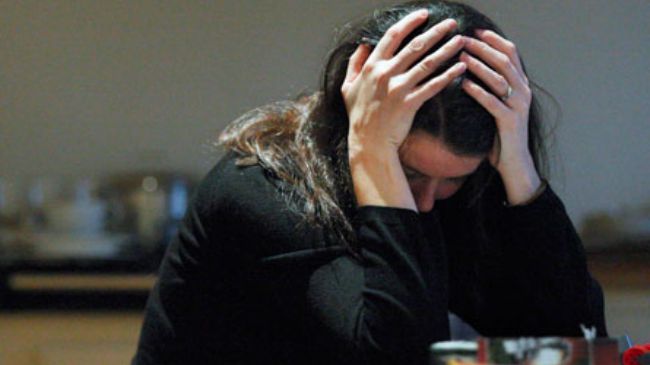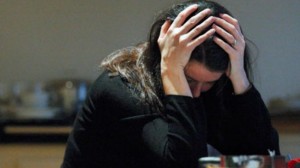‘UK politicians blame poor to avoid guilt’

It is almost 30 years since Norman Fowler, then secretary of state for social security, announcing the flagship welfare reform of the Thatcher era, declared that the social security system had “lost its way” and needed to be reformed to tackle “genuine need”. “Welfare” has since become a term of abuse, and the long-term unemployed are deemed by politicians left and right to be part of a “something-for-nothing culture”. Policies have hardened.
Today the secretary of state for work and pensions, Iain Duncan Smith, among others, says the receipt of benefits is a lifestyle choice that breeds intergenerational poverty, imposes a burden on the taxpayer and constitutes a national crisis.
Politicians know that this kind of language appeals to voters, but the denigration of people in poverty has downsides, as the last few weeks have demonstrated. In setting a cap on welfare expenditure, and with the introduction of employment and support allowance, ministers believed they could weed out fraudulent claims. It does not seem to have happened.
Instead, politicians are surprised that recipients of incapacity benefit “actually are quite ill or very disabled”. Similarly, Labour’s headline message, that the “young jobless must train or be stripped of benefits”, could carry equal dangers since it assumes young people want neither to learn nor to work.
The reality is very different from the rhetoric. Rather than being shameless, new research reported in my forthcoming book, The Shame of Poverty, indicates that people in poverty feel humiliation on a daily basis.
Adam Smith recognized 250 years ago that anyone would be ashamed to appear in public without a linen shirt and leather shoes. In Britain today, people have to make hard choices in their search for dignity and respectability. One lone father in our study spoke of needing to choose between furniture polish and a haircut. This search for respect in the face of society’s refusal to offer it to those in poverty is a soul-sapping frustration not only in Britain but also, our research suggests, in countries as different as India and Norway, China and Uganda, South Korea and Pakistan. Families in poverty everywhere aspire to a better life: they are invariably ashamed that they cannot fulfil those aspirations and live up to society’s expectations; that they cannot afford to be better parents, relatives and friends.
In Britain, and elsewhere, parents desperately want to avoid the bullying at school that occurs because their children come from a “poor” family. One lone mother our researchers met took up an offer from her four-year-old son to sell his Nintendo to pay off bills. Like anyone else, a person in poverty wants to be able to stand a round of drinks, to return a financial favor to friends, to give a suitable gift to relatives. The fact that they cannot afford to do so can be gut-wrenching. For one man we met, it was an assault on his masculinity: “I am meant to be the man … to take care of the missus and my kids. And I don’t, and I hate feeling like I do with myself because of it.” Others interviewed variously described themselves as feeling “rotten”, “degraded”, “crap”, “useless”, “worthless”, “a failure”, even “dirty”.
Shame is recognized by psychologists to be the most invidious social emotion. It undermines self-esteem and causes people to retreat socially. Not only do they seek to avoid settings in which they might be shamed, they feel (correctly, the research suggests) that other people despise and avoid them. Sometimes this shame drives people into clinical depression, to substance abuse and even to suicide.
People seek to avoid shame in many ways. They keep up appearances, pretending to others – and sometimes to themselves – that they are not poor. But this can lead people into a charade, concealing problems that should not be avoided. Like Gerald, portrayed in the film The Full Monty, several people in our research pretended they still had jobs, some even to their partners. But they live in constant fear of being found out.
These experiences hurt on the inside but are imposed from without. People in poverty are shamed daily by those they meet and in the way they are treated. Their attempts to behave normally and to protect their children and lifestyles are dismissed as profligate waste or as demonstrating their inability to cope. In their repeated dealings with officialdom, they face presumptions of failure and accusations of abuse.
All this happens in other countries as well as in Britain. But the unusually vitriolic language of British politicians, amplified by the media, serves to open a psychological wound that is never allowed to heal. Perhaps politicians feel they can justify their harsh language, believing that blaming and shaming will encourage or “nudge” people into changing their behavior. But most poverty is caused by economic factors over which individuals have little or no control. And even if behavioral change could cure a person’s poverty, the scientific evidence overwhelmingly demonstrates that imposing shame is ineffective at encouraging such change.
Instead, shame undermines confidence and saps the ability of people to help themselves. Policies that are stigmatizing are likely to be equally counterproductive. Our respondents explained why: “At the employment office, they look at you like you’re crap.” “It’s the stigma. It makes you feel like you’re scrounging.” “It makes you want to give up.”
So why do politicians continue to abuse the weakest members in our society? Possibly because, in a society characterized by gross inequalities, it allows the privileged to vote in accordance with their own self-interests, free of guilt. After all, it is good to be told that poverty is not your responsibility but the result of people making the wrong choices and not working hard. Shaming and coercing others is a cheap, populist policy option – and one that doesn’t even work. The evidence is that it is likely to make poverty worse.








